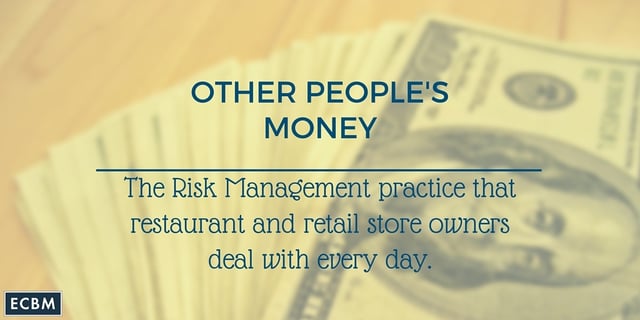
Some may remember the movie by this title involving characters who manipulate each other to gain control of a company in order to line their own pockets. However, the use of another’s money to improve your profit margin isn’t always for the unscrupulous. Sound risk management practices call for risk transfer through any number of mechanisms. Contractual risk transfer is one sound risk management practice restaurant and retail store owners must deal with each day.
Which Businesses Tend To Be At Risk?
Restaurant and Retail store owners enter into contracts with landlords, maintenance service providers, and product and equipment providers. Standard contracts have evolved to not only seek contractual indemnification and defense, but insurance coverage under the other party’s policy. One of the most overlooked opportunities to shift costs in litigated cases involve the possible insurance coverage available to clients under someone else’s policy.
More About Additional Insured Status And Risk
Additional Insured status, in many states, is much broader and easier to obtain than an agreement to indemnify and defend pursuant to the terms of a contract. Many states have Anti- Indemnification statutes that prohibit the transfer of one’s own negligence to another party. See N.J. Stat. § 2A;40A-1 as an example. Other jurisdictions have well established case law that effectively makes such contracts invalid. However, only a few states have extended their Anti Indemnification statutes to prevent such transfers through an insurance arrangement. In Currier v. Penn-Ohio Logistics, 186 Ohio App.3d 249, 2010-Ohio-195, the Ohio appellate court limited an insurer’s duty to defend an additional insured to only those allegations that would make it liable based upon the named insured’s conduct. They further held the carrier’s duty to defend the additional insured does not extend to any claim based on the additional insured’s independent acts or omissions.
Additional insured status, in most states, does not come with such a severe limitation. Therefore an avenue of protection and recovery is available that should always be sought and pursued in cases where the facts support the attempt. A recent review of case law across the country reveals that these severe limitations only exist, in some fashion, in Delaware,Kansas, Montana, New Mexico, Ohio, Oklahoma and Oregon.
It is important to note for the defense practitioner that Additional Insured status does not always require the existence of a written contract or agreement. Commonly used Additional Insured- Vendors endorsements grant additional insured status (with certain limitations) to sellers of a manufacturer’s goods. Therefore, retailers may have access to insurance coverage from their suppliers even if they do not have a written agreement with that supplier.
Of course, these Additional Insured issues are a knife that cuts both ways.
Retail and Restaurant clients are frequently called upon to grant additional insured status to their landlords and other parties. Sound risk management practices help protect clients from accidental hits to their bottom line by limiting the opportunities to suffer a cut by that knife. The same risk management practices will also increase the return clients enjoy by gaining access to other people’s money to pay their claims.
